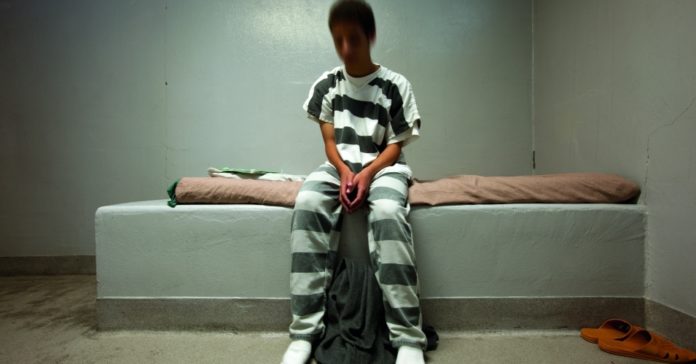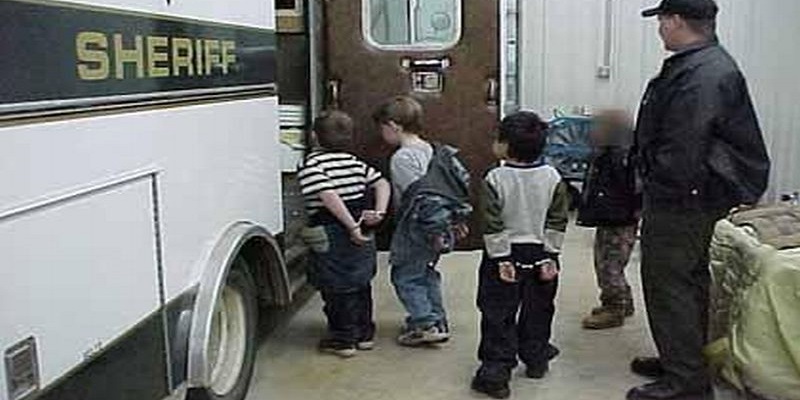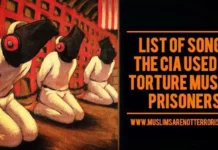
By Nika Knight at commondreams.org
First-of-its-kind report finds children are being imprisoned nationwide when families can’t pay fines levied by juvenile justice system.

Many states are incarcerating poor children whose families can’t afford to pay juvenile court fees and fines, a report published Wednesday finds, which amounts to punishing children for their families’ poverty—and that may be unconstitutional.
Although the growing practice of incarcerating adults who are unable to pay municipal and court fees and fines has been documented for several years, as Common Dreams has noted, the latest report from the Juvenile Law Center is the first in-depth examination of the practice within the juvenile justice system.
The report, “Debtor’s Prison for Kids? The High Cost of Fines and Fees in the Juvenile Justice System” (pdf), documents the results of a survey of 183 people involved in the juvenile justice system—including lawyers, family members, and adults who had been incarcerated as children in the juvenile justice system—in 41 states.
The report authors discovered that in most states there is a pile-up of fees and fines imposed on children and their families once a child enters the juvenile justice system, and that “[m]any statutes establish that youth can be incarcerated or otherwise face a loss of liberty when they fail to pay.”
“[…] a grandmother had taken custody of her grandson but when facing these insurmountable fees, she was told (by a county employee) that the only way she could avoid paying was to hand over custody [to the state].”—Juvenile Law Center survey respondent
There are myriad ways in which juvenile court systems levy fines on children’s families, the report authors found, and then imprison those children when their families are too poor to pay the mounting costs:
- Many states impose a monthly fee on families whose children are sentenced to probation. When a family can’t pay the monthly fee, that counts as a probation violation, and the child is in most cases incarcerated in a juvenile detention facility.
- If children are sentenced to a “diversion program,” or a community-based program meant to keep them out of detention and help them reintegrate into their communities, the families must pay the costs of such a program. When poor children are unable to pay, they are simply incarcerated instead.
- Families in most states must pay for their children’s court-ordered evaluations and tests (such as mental health evaluations, STD tests, and drug and alcohol assessments). Failure to obtain certain evaluations may result in a failure to be granted bond by the court, which means the child would remain in juvenile detention. Or if the tests are performed and the family subsequently can’t pay for them, that counts as a probation violation and the child is re-sentenced, which can mean being incarcerated.
- Some sentences involve a simple fine, such as truancy, and failure to pay results in the child’s imprisonment. “Even when fines are not mandated by statute, they may be treated as mandatory in practice,” the report authers note, describing one impoverished child’s experience with a $500 truancy fine in Arkansas:
One individual who had been in the juvenile justice system there reported that he spent three months in a locked facility at age 13 because he couldn’t afford the truancy fine. He appeared in court without a lawyer or a parent and was never asked about his capacity to pay or given the option of paying a reduced amount. He assumed he had to either pay the full fine or spend time in jail. He explained, “my mind was set to where I was just like forget it, I might as well just go ahead and do the time because I ain’t got no money and I know the [financial] situation my mom is in. I ain’t got no money so I might as well just go and sit it out.”
- “Almost all states charge parents for the care and support of youth involved with the juvenile justice system,” the report adds. Those include fees for room and board, clothing, and mental and physical healthcare, among many other charges, and “[i]nability to pay […] can result in youth being deprived of treatment, held in violation of probation, or even facing extended periods of incarceration.” (Juvenile prisons also charge their own, often higher, prices for children’s prescription medications, the report says, which frequently results in high charges that poor families cannot afford to pay and interrupts necessary healthcare for their children.)
- In all 50 states, a statute exists which deems that if a child and their family can’t afford restitution charges—that is, payment to the victim(s) of the child’s crime, which is a popular sentence in juvenile court—the child is incarcerated.
Juvenile detention facilities are often unsafe and inhumane, as Common Dreams hasreported.
And the fines imposed by juvenile court are “highly burdensome,” according to the report. The average cost of juvenile system involvement is $2,000 per case in Alameda County, California, for example, and “[f]or young people incarcerated for extended periods of time, the costs can be significantly higher.”
“When parents face incarceration or mounting debt for failure to pay, they have even fewer resources to devote to educating, helping, and supporting their children.”
—Juvenile Law Center
The debt divides families already struggling with the ramifications of poverty, the report notes.
“The debt in effect creates a rift between parents and their children,” one survey respondent said, recalling that “I… spoke to a family where a grandmother had taken custody of her grandson but when facing these insurmountable fees, she was told (by a county employee) that the only way she could avoid paying was to hand over custody. Given her limited income, she has seriously considered giving up custody of her grandson, which would make him a ward of the state…”
In some cases, parents can even face imprisonment themselves if they fail to pay their children’s juvenile court system fees. “In a number of states, parents, like youth, may be found in contempt, either civil or criminal, for failure to pay,” the report says.
“Parents may also face increased financial liability through collection fees and interest accruing on payments, as well as civil judgments for failure to pay,” the report authors add. “When parents face incarceration or mounting debt for failure to pay, they have even fewer resources to devote to educating, helping, and supporting their children.”
The report authors also observe that incarcerating children for their families’ inability to pay fees may be unconstitutional:
[I]t is worth noting that the United States Supreme Court has made clear that an individual may not be incarcerated for nonpayment if the court does not first conduct an indigence determination and establish that the failure to pay was willful. The Supreme Court has also held that courts must consider “alternative measures of punishment other than imprisonment” for indigent defendants. Nonetheless, some states require neither willfulness nor capacity to pay in statute, and only a few explicitly limit or prohibit incarceration for failure to pay.
Additionally, the Supreme Court has held that “courts must provide meaningful notice and, in appropriate cases, counsel, when enforcing fines and fees.” This right is even more important for children, who lack both the developmental capacity and the legal knowledge to represent themselves.
“Moreover,” the report continues, “while further research is needed, existing studies suggest that court costs, fees, and fines have limited, if any, fiscal benefit to states and counties, given the difficulty in collecting from families in poverty and the high administrative costs in trying to do so.”
The Juvenile Law Center details the varying policies on juvenile court system fees state-by-state on a new website, and also highlights the few counties and states who are attempting to rectify the problem.
“Ultimately, state and local policymakers should establish more sustainable and effective models for funding court systems rather than imposing costs on youth and families who simply can’t afford to pay,” the Juvenile Law Center says.





“my mind was set to where I was just like forget it, I might as well just go ahead and do the time because I ain’t got no money and I know the [financial] situation my mom is in. I ain’t got no money so I might as well just go and sit it out.”
muricas 13 yrs old thinks, speaks like that.
^Thats a systematic failure right there, wheres international condemnation, same as iszi gets>?.
We’ll spend more money housing these prisoners in one month than all the money they owe in a year.
am I the only one who see’s this for what it is? They want the world divided into two classes, those in power, and those who work for those in power, “free radicals” (middle class) only complicate things for them, so the elimination of the middle class allows them to stay in control because as this article inadvertently stated, if you have money to pay your fines and fee’s then you’ll get off with a warning, but if your poor and stole some food to feed yourself you’ll be charged and then charged again because you cant pay the fine, and then thrown in jail. meaning the rich get smarter and healthier while the poor get dumber and malnourished, allowing the rich to stay in control and also allowing them to keep the current laws that favor them in place. can’t anyone see that this system isn’t broken, it was built this way… only a true uprising and revolution can fix this now.
A limitless number of prey for the pedophiles who run the system.
eactly what I was thinking. our children are becoming sex slaves. this problem is way worse than people realize. all CPS in every state are in on it. every single one has at least one mole in their state agency. and one of the secret societies is to pick the future judges of these courts to make sure the pedophiles never get caught. the one in charge of that was Scalia. Karma caught up with that pedophile and he got his throat slit by a teenage boy he had been raping. these sick mother fuckers are going to pay one way or another. this makes me absolutely positively sick to my stomach. America supplies the most children to these pedo child trafficking rings. AMERICA. OUR OWN BACK YARD My god what’s happening to people.
I think kids on the black market go for about 10G. Sell the kid, pay the fine, have another kid. Its magic 😀
The suits are wanting to take the ones forgotten to Bohemian Grove. The middle class has sit on their ass giving the suits a pass. I know why these politicians wear suits now. They are getting ready for our funeral. Any man or woman that participates in this evilness will find themselves penniless. They will watch their children starve to death. Within 3 days of being 3 weeks they will become so hungry, they will dig their own offspring from the grave. Their children will be their last meal, for they had a helping hand in bringing energy of darkness upon the land. If you know anyone working at a place such as this, it would be wise not to befriend them and if you are friends with one of these soulless beings, wisdom is to unfriend them.
The Trump Regime is in full swing before he’s a president. Money can buy happiness… Look at his wife. Trump’s ‘Great America’… look out world, here comes the future.
I”m no trump supporter but your comment is a dead give away you’re a troll. probably paid by the kilary campaign. please go fuck yourself you piece of shit traitor. we have enough traitors in this country. rot in hell you zionist parasite backer.
that second picture on this site is not the reality is it? Children that age being handcuffed? Busloads full? I can see where maybe this was a “field trip” of some kind, where kids see what happens when you make bad choices, but surely- this never happens right?
can you show that picture is legit to this story?
just asking…..